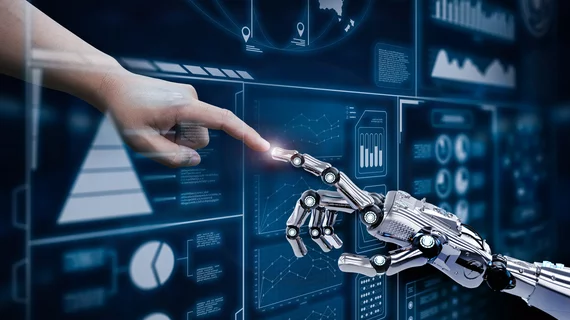Patients trust medical AI more than healthcare providers do
Patients and healthcare providers both see potential in AI’s ability to improve healthcare. Patients, however, appear to trust AI technology more than providers.
These findings both come from a new survey published in Artificial Intelligence in Medicine. Such a survey was necessary, the study’s authors explained, to help “provide guidance for the future development of medical AI.”
“Since the public has distinct viewpoints and anticipations regarding the rapid development of medical AI, an extensive opinion survey is conducive to our understanding of their specific comments, receptivity, and demands,” wrote Yifan Xiang, Sun Yat-sen University in China, and colleagues.
The research team surveyed a total of 2,780 people from throughout China from Oct. 12 to Oct. 30, 2018. More than 54% of participants were female, and more than 43% were between the ages of 30 and 39 years old. In addition, 54.5% of all participants were healthcare workers. The survey included questions about how each respondent perceived AI, what they wanted out of these evolving technologies and more. Healthcare workers were asked about how open they were to participating in AI research.
Overall, the authors found “no significant difference” between healthcare workers and non-healthcare workers when it came to being receptive to medical AI. There was more of a variety, however, when the two groups discussed their demands and perceptions of medical AI.
For example, healthcare workers want AI that can “alleviate daily repetitive work and improve outpatient guidance and consultation.” Non-healthcare workers, on the other hand, are more concerned about how AI can improve a physician’s diagnosis.
Also, while both groups trust human doctors more than medical AI, the percentage of respondents who said they trust medical AI was actually higher among non-healthcare workers (11.4%) than healthcare workers (7.5%).
This limited trust of AI, the authors explained, is a sign that physicians should not fear being replaced by algorithms any time soon.
“Doctors are irreplaceable in medicine in the foreseeable future,” the researchers wrote. “The ability to understand the specific physical conditions of each patient requires the doctor to attune his or her perception to the patient's history and physical exam, which seems uniquely human. In addition, human doctors have a more nuanced understanding of the needs of patients at the end of life in terms of not only the length of life but also the quality of life.”
Another statistic that stood out from the team’s survey was that approximately 95% of healthcare workers intend on learning more about AI through training and research.
“Given the inexorable trend towards intelligent healthcare, doctors who use AI could probably replace those who do not,” the authors wrote. “Healthcare workers have begun to realize the importance of learning AI techniques.”

